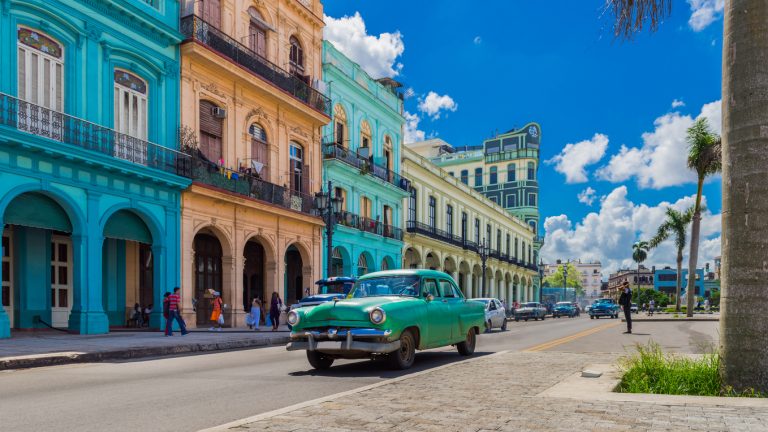
The Trump administration abruptly banned cruise ships and a popular category of educational travel to Cuba in an attempt to cut off revenue to the island’s government effective June 5, 2019.
![]() By: Heather Newgen | Twitter: @hnvoluntourist
By: Heather Newgen | Twitter: @hnvoluntourist
“This administration has made a strategic decision to reverse the loosening of sanctions and other restrictions on the Cuban regime. These actions will help to keep U.S. dollars out of the hands of Cuban military, intelligence, and security services,” Treasury Secretary Steven Mnuchin said in a statement.
Under President Barak Obama, cruise travel began from the U.S. to Cuba in 2016. It’s become one of the main forms of travel from the states.
Those with pre-paid travel plans will be “grandfathered” in,” according to the State Department. In addition, other categories allowing travel are still available, including faith-group trips, humanitarian projects and the nebulous “support of the Cuban people,” NPR reports.
Within minutes after the Trump Administration’s announcement restricting travel between the U.S. and Cuba, Cruise Planners travel advisor Michael Consoli’s phone was ringing off the hook. As a travel advisor for 18 years, who specializes in luxury travel, several guests who had future travel booked wanted to pay in full in hopes that they would lock in their plans and get grandfathered in to any existing Cuba travel.
“The Trump Administration’s announcement restricting travel between the U.S. and Cuba is disappointing and the impact is significant. We have seen a huge spike in consumer demand and the cruise lines have invested a lot in Cuba,” said Michael Consoli, Cruise Planners franchise owner.
Cuba generated a lot of buzz and positivity as soon as the ban was lifted a few years ago and more recently, there have been rumblings about cutting Cuba off, which drove even more demand to travelers. Cutting this off is representing billions of dollars of travel.
“Cuba appeals to experienced cruisers and those who have traveled to exotic places already. Many cruise lines that offered Cuba cruises, have done a very good job showcasing the benefits and making it attractive to well-traveled clients. Specifically, the luxury and premium cruise lines – such as Regent Seven Seas, Viking Ocean, Oceania Cruises – were selling far out in advance. There was a real desire across the entire economic spectrum as cruising is a comfortable way to visit many parts of the world as travelers feel familiar with the cruise ships while exploring a new destination.”
Once on the island nation the people-to-people cultural exchanges were popular since many of the luxury cruise lines were stopping in up to three ports of call, including Havana, before coming back to the states.
“As travel advisors, we send people all over the world, with many ports having pre-arranged excursions with a guide or escort – and Cuba was no exception with most travelers prearranging their shore excursions through their travel advisor to get the most out each day in port,” he said.
“Unfortunately, cruises can be impacted by changes to the itinerary, and while this example is unprecedented, having been in the industry for 18 years, I have seen my fair share of itinerary changes.”
“We have not received official information from the cruise lines, but whether the cruise lines redeploy the ship to a different port, or find other creative ways to retain the client bookings, we will work hard for our clients – to find something they can be excited about,” he added.
“Cuba remains communist, and the United States, under the previous administration, made too many concessions to one of our historically most aggressive adversaries,” Commerce Secretary Wilbur Ross said in a statement.
Ross added that the administration “is acting to limit commercial activity that provides revenue for the Cuban regime. Holding other countries accountable remains a focus for this Administration and we will remain vigilant.”
We’ll update this story as it develops.
